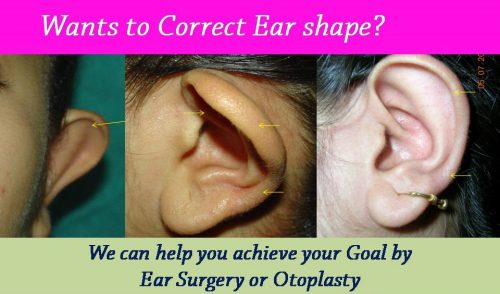Home - Ear Surgery
Ear Surgery
What is ear surgery?
Otoplasty can correct a defect in the ear structure that is present at birth that becomes apparent with development or it can treat misshapen ears caused by the injury.
Ear surgery creates a more natural shape while bringing balance and proportion to the ears and face. Correction of even minor deformities can have profound benefits to appearance and self-esteem.
If protruding or disfigured ears bother you or your child, you may consider plastic surgery.

What ear surgery can treat
Overly large ears — a condition called macrotiaProtruding
ears occurring on one or both sides in varying degrees — not associated with hearing loss
Adult dissatisfaction with previous ear surgery
Otoplasty and Health Insurance
Most health insurance plans will not cover elective surgery, related complications, or another surgery to revise the appearance of your ears. Accidental injuries of the ear are usually covered under insurance. Be sure to consult with your insurance company in advance of any surgery.






Ear surgery Recovery
Hospitalization: 6 to 48 hours
Dressings &/or Bandages: 2 to 7 days
Restriction of activity: Avoid injury for 3 weeks


Ear surgery candidates
Children who are good candidates for ear surgery are:
- Healthy, without a life-threatening illness or untreated chronic ear infections
- Generally 5 years old, or when a child’s ear cartilage is stable enough for correction
- Cooperative and follow instructions well
- Able to communicate their feelings and do not voice objections when surgery is discussed
- Teenagers and adults who are good candidates for ear surgery are:
- Healthy individuals who do not have a life-threatening illness or medical conditions that can impair healing
- Non-smokers
- Individuals with a positive outlook and specific goals in mind for ear surgery
Ear surgery is a highly individualized procedure and you should do it for yourself, not to fulfill someone else’s desires or to try to fit any sort of ideal image.
Our Services
-
LiposuctionLiposuction
-
GynecomastiaGynecomastia
-
Tummy Tuck or AbdominoplastyTummy Tuck or Abdominoplasty
-
RhinoplastyRhinoplasty

Book Appointment




